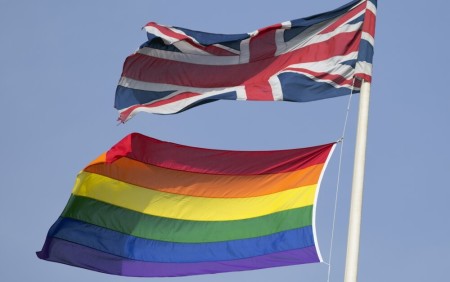Christian Groups Express Concern Over UK Proposal to Ban Therapy for Unwanted Same-Sex Attraction

Christian organizations in the United Kingdom are expressing concern and opposition to a proposed law that would ban counseling and therapies for patients with unwanted same-sex attraction.
Following a national survey of approximately 108,000 individuals who claimed to identify as LGBT, the U.K. government is considering what the BBC described on Tuesday as "all legislative and non-legislative options to prohibit promoting, offering or conducting conversion therapy."
In response to the news, the London-based organization Christian Concern released a statement arguing that such a ban would violate the European Convention on Human Rights.
"Restricting therapy would violate freedom of speech of both clients and therapists, as well as third parties such as supervisors of therapists," the group said. "A situation would arise whereby a state had prohibited free speech on human sexuality, behaviour and feelings in private and confidential conversations as well as public settings, essentially because LGBT activists consider the words that might be said to be offensive."
In addition to freedom of speech, Christian Concern also warned that a possible ban would curb the freedoms of expression, information, assembly, association, and conscience.
"Many people choose to seek therapy to move away from LGBT identification for reasons of conscience. Many professionals in this field are also following their conscience in providing such services," continued the group.
"It is important to state that not all of these clients or professionals would be religious. In recent years the misleading impression has arisen in the media that conscientious objection to same-sex sexual behaviour and transgender identification is only held by religious people, whereas in fact survey evidence suggests objections are more widely held."
Core Issues Trust, a Christian nonprofit based in Northern Ireland that offers counseling of various kinds, released a statement Monday expressing support for regulation of conversion therapy, but not an outright ban.
"The Trust supports the rights of autonomous individuals to take the pathways that reflect their goals and values, including LGBTI dignity. It supports regulation of sexual attraction fluidity exploration therapy where the dangers of viewpoint discrimination have been removed by fair representation on decision-making bodies," stated the Trust.
"[Core Issues Trust] argues that banning such therapies is a denial of fundamental human rights as laid down in the European Human Rights Convention (EHRC, 1951). It calls for regulation over restriction or banning."
Also called reparative therapy, gay conversion therapy is rejected by most major psychiatric organizations, with many arguing that the practice in inherently harmful to LGBT individuals, especially youth.
Across the Atlantic Ocean in the United States, several states and the District of Columbia have enacted bans on conversion therapy for minors.
California, the first state in the nation to pass such a ban, is currently considering proposed legislation broadening their ban to include "any practices that seek to change an individual's sexual orientation," minors or adults.





















